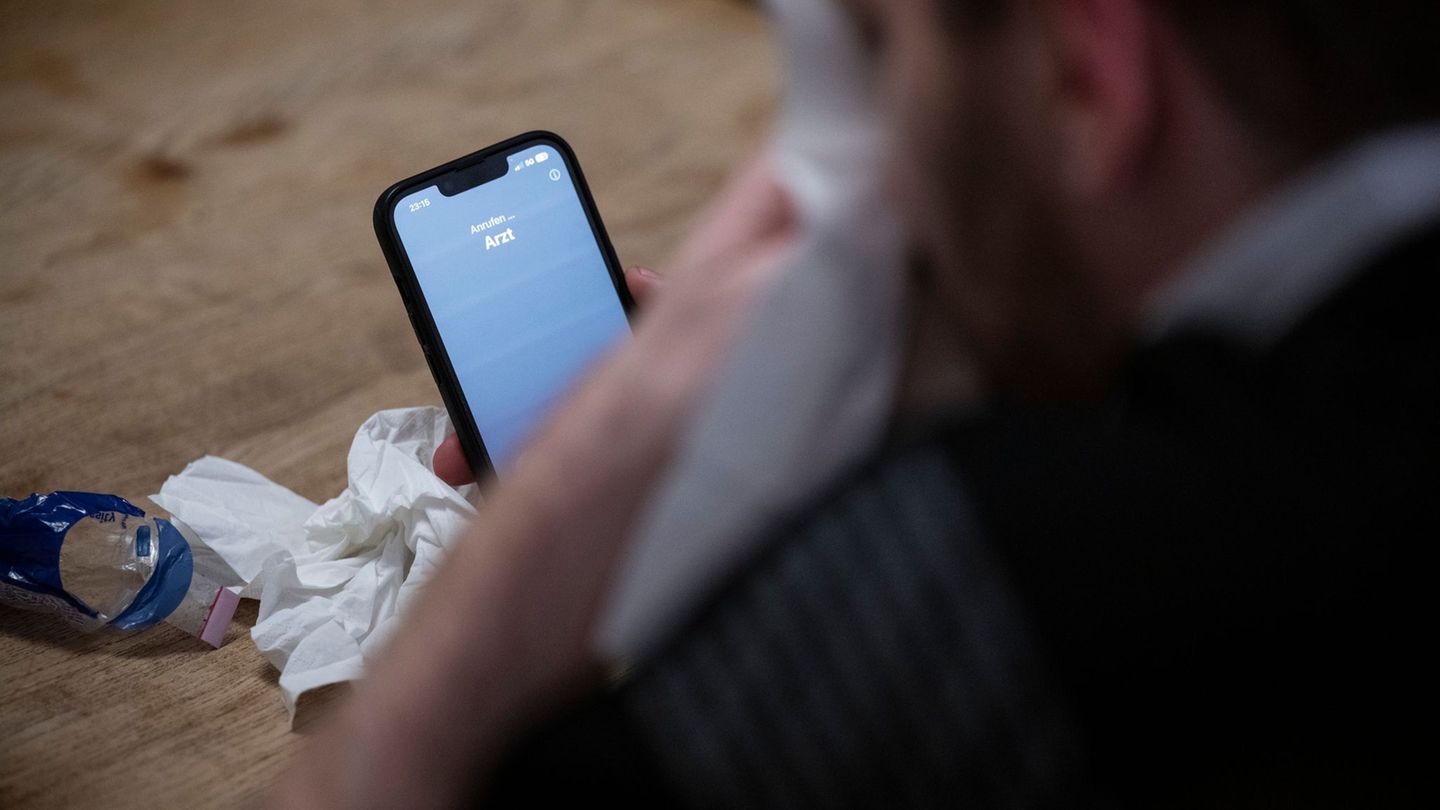CDU politician Wolfgang Schäuble turns 80. The longest-serving member of parliament can look back on an amazing career.
Monolith. veteran of German politics. Solid as a rock. Some paraphrases for Wolfgang Schäuble are so exuberant that they move almost painfully into the pompous area, which pictorially is probably off track for this slim man.
In terms of content, however, the hymn-like praise is quite accurate: Wolfgang Schäuble is a monolith of decency in politics. Indeed, his intellect and character tower like a non-partisan rock far above the lowlands of everyday party politics in Berlin. The grand seigneur of the Christian Democrats is the longest-serving member of parliament who can celebrate two anniversaries in a row:
On September 18 Wolfgang Schäuble will be 80 years old. And on December 13, he has been a member of the German Bundestag for 50 years. For comparison: August Bebel (1840-1913), one of the legendary founders of the SPD, sat in parliament from 1867 to 1881 and from 1883 to 1913. This makes Schäuble the longest-serving member of parliament in German parliamentary history since the constitutive session of the first all-German parliament on May 18, 1848 in Frankfurt’s Paulskirche.
A spectacular career in politics
The doctorate in law, who unmistakably comes from Breisgau in southern Baden, was initially a government councilor in the tax office in Freiburg, where he was on leave as a tax officer from 1972 when he entered the Bundestag until 2007 when he reached retirement age – because Schäuble was doing in the A spectacular career in politics.
He was Federal Minister for Special Tasks and Head of the Federal Chancellery under Chancellor Helmut Kohl (1930-2017), Minister of the Interior (in the Kohl and Merkel cabinets), Minister of Finance under Chancellor Angela Merkel (68). Wolfgang Schäuble led the CDU as parliamentary group leader and federal chairman, was President of the Bundestag. He will go down in the history books as one of the architects of German reunification, in which he played a key role in negotiating the unification treaty with the former GDR in 1990. On his initiative, Berlin became the new capital of the Federal Republic of Germany.
Despite these great achievements, he was denied the two highest political offices: Wolfgang Schäuble was never Chancellor and never President – and that also has something to do with the event of October 12, 1990. At an election campaign event in Oppenau, Baden, a mentally ill assassin shot him. A bullet hit him through the chest into the spinal cord. The then 48-year-old Wolfgang Schäuble was paralyzed from the third thoracic vertebra onwards. From then on he was in a wheelchair.
The scale of the assassination
Without his family – wife Ingeborg (78) and the four children were and are the mainstay – the life of the politician Schäuble would have been different. In conversation with the also disabled actor and playwright Peter Radtke and , “half” is also in a wheelchair because she “shared this new life with me”. “I don’t know whether I would have behaved the same way the other way around. I hope so. The children didn’t have any major problems with the new situation. Our dog had the most problems. We had a dog at the time that never changed used to the wheelchair, it just didn’t come to me anymore. That was terrible.”
Has the disability prevented further political advancement? After all, the then Bavarian Prime Minister Edmund Stoiber (80) said that a person with a disability could not become chancellor. That was held against him at the time, but he also found it “legitimate”, he told the “SZ-Magazin”. “Anyone who has such a high office has to endure that it is discussed whether they are physically and physically able to do so.”
The fact that Schäuble did not become chancellor was also due to his political mentor, Helmut Kohl. During his chancellorship, he repeatedly emphasized that he saw only one possible successor far and wide: Wolfgang Schäuble. But that never happened because Kohl didn’t want to give up on his own accord – and finally in 1998 the SPD nominated the chancellor because Kohl was voted out.
Wolfgang Schäuble’s “worst crisis” and the break with Kohl
A short time later, a party donation scandal shook the republic with Chancellor Kohl at the center. There was talk of undeclared donations of 2.1 million marks, black accounts in Switzerland and tax evasion. The suspicion that has never been proven: Kohl needed the “Bimbes”, as he called money, in order to consolidate his power within the party with a well-stocked CDU coffers. He himself had admitted to having accepted illegal donations, he could not reveal the names of the donors, he had given his word of honour.
that this difficult situation also became Wolfgang Schäuble’s most serious crisis – from his foster father, whom he had always served loyally: “When it dawned on the chancellor of the unit that his life’s work was in danger, he did something that Wolfgang Schäuble only did in in hindsight has really understood, as he explains in his book “In the Middle of Life’: Kohl hatched an intrigue with criminal elements in order to destroy him, Schäuble. The former chancellor drew attention to his most loyal follower. Rolled him in front of him as a protective shield in the line of fire.”
Schäuble had even accidentally given him a through ball for this: he too had admitted that he had received a cash donation of 100,000 Deutschmarks from an armaments lobbyist and had paid it to the party. Strangely enough, the whereabouts of the money could never be clarified. Suddenly Schäuble was the center of attention. The man for whom decency is the most important standard saw his integrity violated. “The attack on his honor hit Wolfgang Schäuble harder than the shots that forced him into a wheelchair,” wrote the “NZZ”.
Because his credibility was at stake and Kohl, who could have contributed to his exoneration, remained staunchly silent, he resigned as CDU chairman and parliamentary group leader in February 2000. Before that, there had been a meeting with the former chancellor, at which Schäuble broke with Kohl: “I’ve already spent far too much of my limited lifetime with you, and there won’t be another minute.”
Schäuble later said about Kohl in a documentary in the ARD series “Duels”: “I have no grudges against him, treat him with respect, with his memory. But I don’t want anything to do with him anymore.”
“I’m over”
“I’m over,” Schäuble likes to say in good Badenian when something has gone well for him. It became an infamous quote when he was finance minister in Chancellor Angela Merkel’s cabinet and the issue was further aid payments to ailing EU member Greece.
It’s over – does that also apply to Schäuble in politics? “Being a politician” has helped him to cope with everything since he was in a wheelchair, he told the “SZ-Magazin”. Although his wife Ingeborg would have liked to retire from politics. “I asked her then: Do you really want me to be without everything?”
He is now the Senior President of Parliament. And he is very careful not to “get in the way of the incumbent President of the Bundestag,” he told the “Süddeutsche Zeitung”: “Of course I go to the parliamentary group meetings, but I try to only give my advice when I’m asked about it . And not just like that. I don’t like the old people who keep interfering.”
His mandate runs until 2025, Schäuble recently announced: Then “it’s over”.
Source: Stern
I am a 24-year-old writer and journalist who has been working in the news industry for the past two years. I write primarily about market news, so if you’re looking for insights into what’s going on in the stock market or economic indicators, you’ve come to the right place. I also dabble in writing articles on lifestyle trends and pop culture news.




